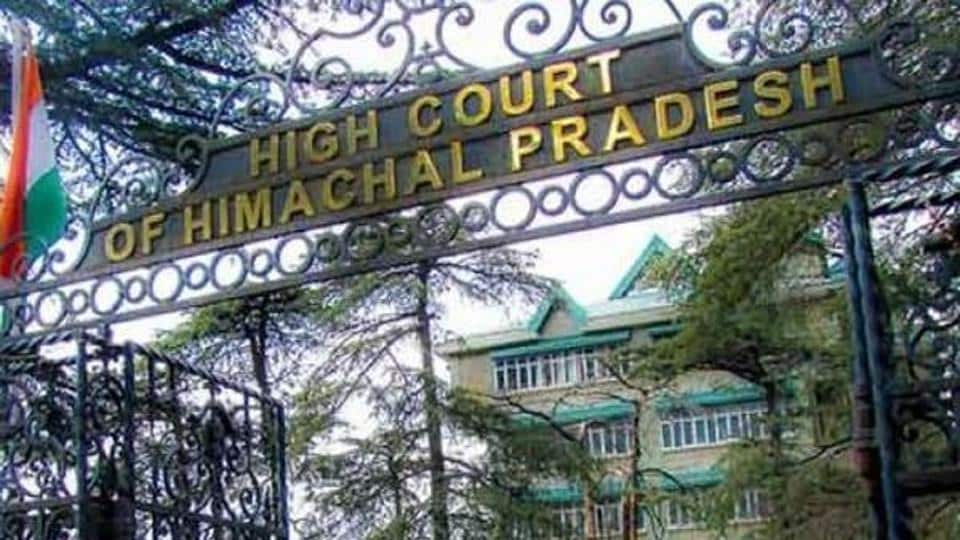While coming down heavily on the rampant abuse of the review process by the State, the Himachal Pradesh High Court in a most learned, laudable, landmark, logical and latest judgment titled State of HP vs Chaman Lal Bali & Ors in C.M.P.M. No. 1392 of 2023 that was reserved on 23.11.2023 and then finally pronounced on 05.12.2023 minced just no words to observe unequivocally that a litigant cannot adopt inconsistent stands and abuse the review process by repetitively raising points previously given up. It must be noted that the Court while taking a strong exception to the gross abuse did not lag behind in imposing a cost of Rs 50,000 on the State for filing multiple review petitions on the same factual basis. It must be mentioned here that the State, as the review petitioner, had sought to challenge a judgment that had favoured the respondent in his writ petition directing the State to take over the respondent’s services as a Lecturer in Economics from September 14, 2006.
It is noteworthy that a Division Bench of Hon’ble Mr Chief Justice MS Ramachandra Rao and Hon’ble Ms Justice Jyotsna Rewal Dua minced just no words to hold most forthrightly that, “A litigant cannot be permitted to take inconsistent, contradictory and shifting stands in the same case at his whims and fancies. It is not open for a litigant to keep re-thinking back and forth after the pronouncement of the judgment in order to have it reviewed multiple times on the same ground. No case for review is made out.” Of course, the Court was most baffled to note as to why the review petitioner had without any valid ground filed a second review petition on the same ground. Very rightly so!
At the very outset, this remarkable, robust, rational and recent judgment authored by Hon’ble Ms Justice Jyotsna Rewal Dua for a Division Bench of the Himachal Pradesh High Court in Shimla comprising of Hon’ble Mr Chief Justice MS Ramachandra Rao and herself sets the ball in motion by first and foremost putting forth in para 1 that, “This petition seeking review of the judgment passed on 17.11.2022 in LPA No. 517 of 2012 is barred by 207 days.”
To put things in perspective, the Division Bench envisages in para 2 while dwelling on the background/facts stating that, “2(i) Respondent No. 1 was the writ petitioner. His writ petition being CWP(T) No. 16150 of 2008 was allowed by the learned Single Judge on 04.11.2011. The review petitioner was directed to take over respondent No.1’s services as a Lecturer (College Cadre) in the subject of Economics w.e.f. 14.09.2006 with all consequential benefits.
2(ii) LPA No 517 of 2012 was preferred by the review petitioner against the aforesaid judgment. The appeal was disposed of on 30.10.2018 alongwith other connected matters with certain modifications in the relief allowed to respondent No. 1.
2(iii) The State (present review petitioner) filed review petition No. 101 of 2019 seeking review of the judgment passed on 30.10.2018 in LPA No. 517 of 2012. The sole ground was that respondent No. 1 (writ petitioner) did not possess educational qualification required under the R&P Rules, hence was not entitled to the relief granted to him. In view of the ground urged, review was allowed on 20.08.2021 and consequently LPA No. 517 of 2012 was restored to its original number.
2(iv) The LPA, after its restoration, was taken up for hearing on 17.12.2022 when it was submitted by the learned Deputy Advocate General for the State (present review petitioner) that the respondent(original writ petitioner) in fact possessed the required qualification for the post of college Lecturer. Taking note of the submissions made for the State, the LPA was disposed of on 17.11.2022 with directions to the review petitioner to implement the judgment dated 30.10.2018 passed in LPA No. 387 of 2012 alongwith other connected cases, including LPA No. 517 of 2012 and release admissible benefits in terms thereof to the respondent (writ petitioner) within a period of four weeks. Cost of Rs. 20,000/- was also imposed upon the review petitioner payable to respondent No. 1. The judgment dated 17.11.2022 which is now being sought to be reviewed, is extracted hereinafter :-
“The petitioner was appointed as Lecturer in the subject of Economics in DAV College, Daulatpur Chowk on adhoc basis on 19.07.2000. After his suitability to the post was adjudged by a duly constituted selection committee, his services were regularized on 18.01.2005. The Himachal Pradesh University also approved his appointment. The college was taken over by the State on 14.09.2006. Vide notification dated 04.01.2007, services of its staff were also taken over. The service of the petitioner, however, was not taken over on the ground that his salary was paid out of Self Financing Scheme.
2. Aggrieved, petitioner preferred CWP(T) No.16150/2008. This writ petition was decided by the learned Single Judge on 04.11.2011. It was held that the lecturers appointed in the college in question constituted a homogeneous class and there could not be any invidious discrimination amongst them only on the basis of mode of payment of salary. The writ petition was accordingly allowed alongwith two other connected writ petitions. The respondents were directed to take over the services of the petitioner as Lecturer (College Cadre) in the subject of Economics w.e.f. 14.09.2006 alongwith all consequential benefits.
3. The State filed Letters Patent Appeal No.517 of 2012 against the aforesaid judgment passed by the learned Single Judge. This appeal was heard alongwith eleven other appeals, involving same issue and similar judgments. LPA No.517 of 2012 was decided on 30.10.2018 alongwith this bunch of eleven other appeals, with lead case LPA No.387 of 2012. The Division Bench held that the mode of payment of salary will not have any significance in respect of taking over of services of the writ petitioners; that the issue had rightly been determined by the learned Single Judge in favour of the teachers; the Bench observed that it is beyond the reach of a teacher to ascertain as to whether the salary being paid to him was coming out from the grant-in-aid or from the funds generated by the Management. While affirming the findings of the learned Single Judge, with respect to the admissibility of arrears to the writ petitioners/teachers, whose services were taken over, following was observed in paras-19 and 20 of the judgment:
“19. Faced with this, learned Advocate General urges that since there were contentious issues involved with regard to the claim of the respondent(s) for their absorption in Government service on taking over the College, learned Single Judge ought not to have granted the consequential benefits or 9% interest (as awarded in some of the cases).
20. We find merit in this contention. Notification dated 25.8.1994 lays down general terms and conditions for taking over all privately managed Colleges alongwith Teaching and Non-Teaching Staff. As there was grey area as to whether the respondents in these cases fulfill all the eligibility conditions, there arose necessity for adjudication of dispute by this Court. In such like situation, it appears that ends of justice would be adequately met by directing that though the will stand absorbed from the date when the College was taken over, however, such absorption will be on notional basis and they will be entitled to salary from the date of their actual appointment. In other words, respondents shall not be paid the arrears of salary from the date the College was taken over till a formal order of their absorption is passed hitherto within a period of two months from the date of receipt of copy of this judgment. They shall, however, be entitled to notional pay fixation without any interest or arrears, as awarded by the learned Single Judge.”
4. It is not in dispute that the judgment passed by the Division Bench on 30.10.2018, stands implemented in respect of eight connected appeals.
5. After the disposal of LPA No.517 of 2012, the State filed Review Petition No.101 of 2019, seeking review of the judgment passed by the Division Bench on 30.10.2018 in CWP(T) No.16150 of 2008. The ground put forth was that the writ petitioner was not qualified for the post of college Lecturer as he did not possess the qualification required under the Rules. The review petition was allowed on 20.08.2021 with observations that whether the writ petitioner was qualified or not is a matter to be decided by the Appellate Court. Hence, the appeal was restored to its original number.
6. During hearing of the appeal today, learned Deputy Advocate General fairly submitted that he has instructions to state that the writ petitioner possesses the required qualifications for the post of college Lecturer; that the sole ground available with the appellants in this appeal for opposing the prayer made in the writ petition is that writ petitioner was engaged in the college in question on the basis of Self Financing Scheme.
7. The Division Bench in its judgment dated 30.10.2018 has already affirmed the decision of learned Single Judge that Lectures cannot be discriminated on the basis of mode of payment of salary to them, be it under Self Financing Scheme or grant-in-aid etc. This aspect has attained finality. Judgment to this effect stands implemented by the State in eight other connected appeals. That being the position, we really fail to understand the reason for filing review petition by the State. In case the petitioner was fully qualified for the post as is being projected now by the appellants/State, then instead of filing review on the alleged ground of petitioner’s being unqualified, the State as a model employer should have implemented the judgment dated 30.10.2018 at the appropriate time in favour of writ petitioner.
Please read concluding on
link4din.com/guardians-numeric-wisdom







